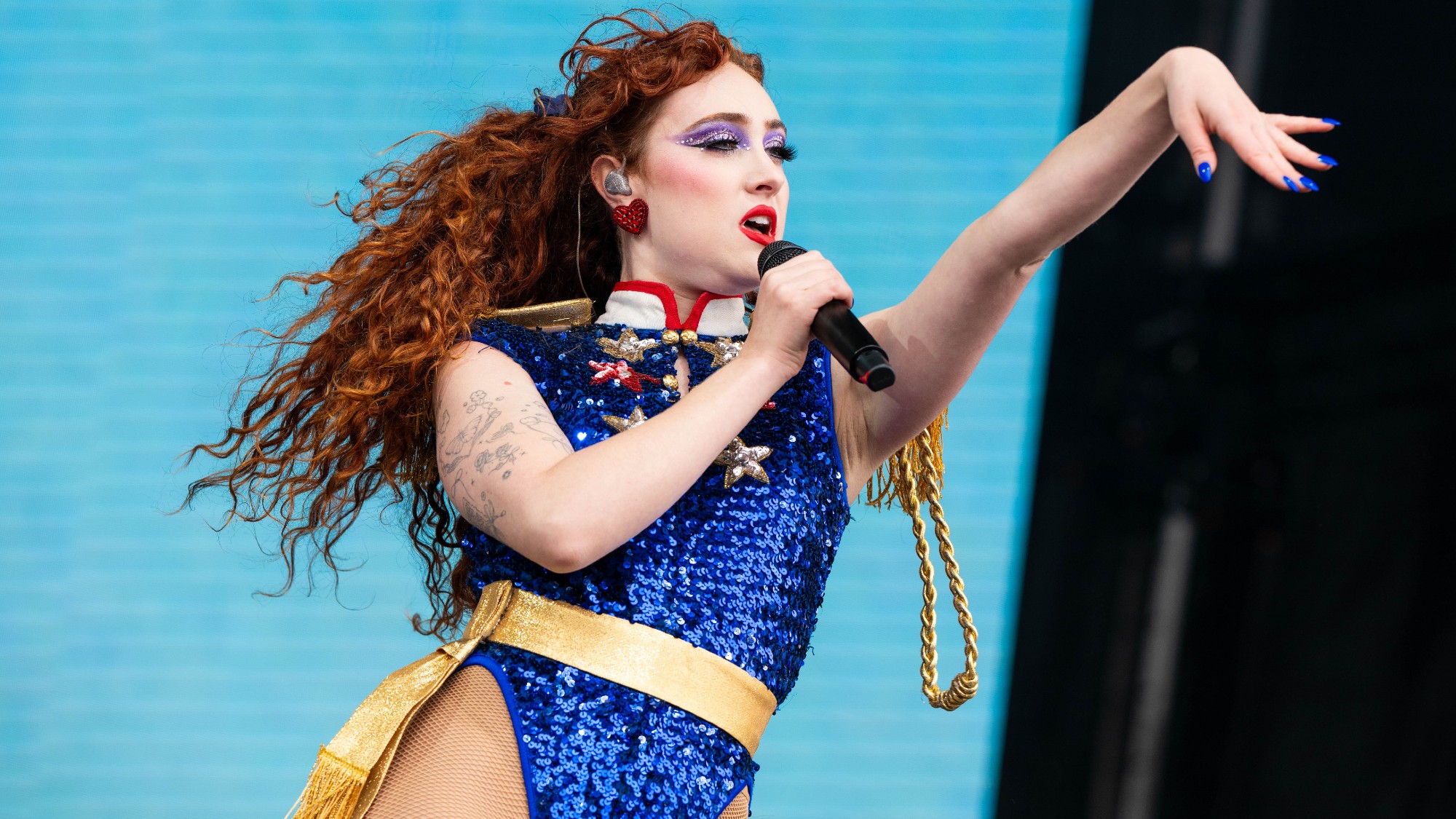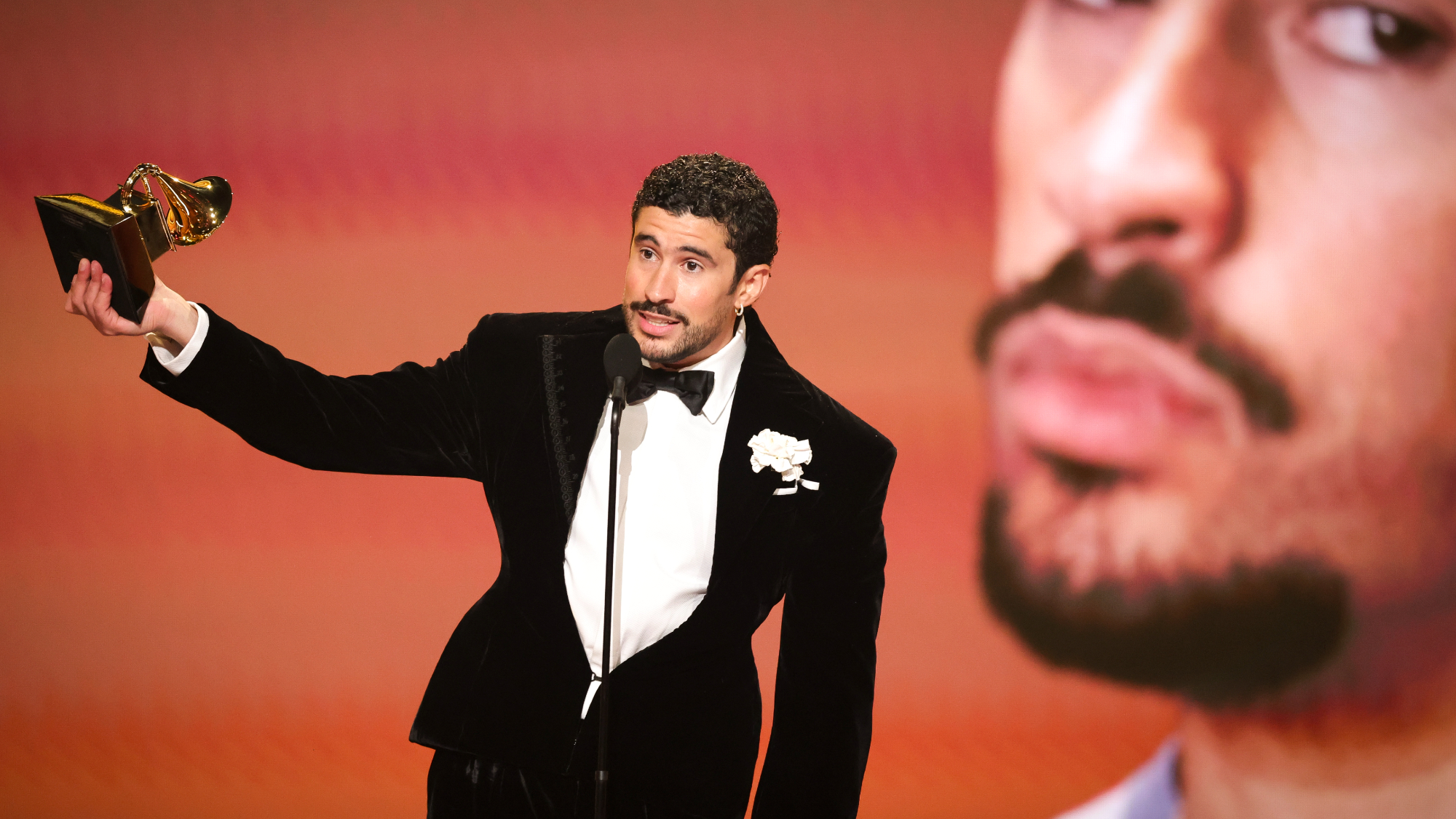Chappell Roan is pushing boundaries by setting them
She's calling out both fans and the media for invasive behavior


A free daily email with the biggest news stories of the day – and the best features from TheWeek.com
You are now subscribed
Your newsletter sign-up was successful
Chappell Roan's six nominations at the upcoming Grammy Awards — including in all "Big Four" categories — rounds off a year which has seen the pop singer-songwriter rocket to mainstream fame. Her album "The Rise and Fall of a Midwest Princess" soared in sales and streams this summer, but she was a working musician for many years before receiving mainstream recognition. Her popularity increased when hooky tunes like "Casual" and "Good Luck, Babe!" went viral on TikTok, and her drag-queen aesthetic and proudly proclaimed sexuality gave her a leading voice in the LGBTQ community. Soon, she was dominating festivals, performing on late-night shows and edging closer to becoming a household name.
Fame is a double-edged sword, and Roan has struggled with the spotlight shining so brightly on her — especially as someone with bipolar II disorder. In August, Roan posted a message on Instagram addressing the stalking and harassment she has endured. "I don't agree with the notion that I owe a mutual exchange of energy, time or attention to people I do not know, do not trust or who creep me out — just because they're expressing admiration," she said. She faced backlash for these remarks, with some people accusing her of entitlement or whining in the face of success. "Why is a girl expressing her fears and boundaries so infuriating?" Roan responded in the caption of the post.
Roan made headlines again last month following a red carpet incident in which she demanded an apology from a photographer who was "disrespectful" to her — and this was not the first time she has confronted a photographer. Roan's consistent boundary-setting is empowering to many women, but it's part of a larger trend: Female celebrities refusing to play nice simply because it is expected of them.
The Week
Escape your echo chamber. Get the facts behind the news, plus analysis from multiple perspectives.

Sign up for The Week's Free Newsletters
From our morning news briefing to a weekly Good News Newsletter, get the best of The Week delivered directly to your inbox.
From our morning news briefing to a weekly Good News Newsletter, get the best of The Week delivered directly to your inbox.
Expressions of defiance
Roan is not the first woman to battle the excesses of fame, nor is she the first to stand up for herself against the media or her fans. Musician Billie Eilish, for example, has been open about her displeasure with fans who cross her physical boundaries — "people will kiss me and pick me up, spin me around," she said to Vanity Fair — and also about how paparazzi shots taken without her consent have led to online body-shaming.
Meghan Markle refused to be photographed holding her newborn son, a choice for which the British media crucified at the time: "Meghan is trying to smash the royal family's contract with the public: We pay, they pose," said a columnist at The Times. Those pressures drove Prince Harry and Markle to renounce their royal titles in 2020. Last year, Doja Cat addressed fans who behaved as though she "belongs" to them: "My theory is that if someone has never met me in real life, then, subconsciously, I'm not real to them," she said to Harper's Bazaar.
Other women have been inspired by Roan's expressions of defiance. When she first posted a plea on Instagram for fans to respect her space, Hayley Williams of Paramore reposted the statement, adding: "this happens to every woman i know from this business, myself included … i'm really thankful chappell is willing to address it in a real way." After spending time with Roan on the "Guts Tour," Olivia Rodrigo said to Billboard, "she actually gives me so much advice on taking care of myself." Maya Rudolph similarly praised Roan's boundary-setting: "'Boundaries' is not a word that we Gen Xers were taught," she said to Variety. "Every human being walking around with a camera in their pocket, that has not helped boundaries."
'She refuses to lower her voice to a comfortable volume'
The media's treatment of celebrities has long been invasive, but with the advent of social media, fans have become a part of the problem. A "parasocial relationship" — typically defined as a "one-sided social and emotional connection developed with celebrities," said Time magazine — can lead some fans to assume they know a famous person they have never met; in more extreme cases, fans feel that person "owes" them their time, art or life.
A free daily email with the biggest news stories of the day – and the best features from TheWeek.com
"I can't escape the feeling that the primary reason a lot of people dislike [Roan] is because she refuses to lower her voice to a comfortable volume," said Louis Staples at Harper's Bazaar. With fame being the "only thing that is more idealized in Western culture than money," people are turned off by Roan daring to question her treatment by the public. "We're the ones who keep saying we want [celebrities] to be less guarded, or more political, but then punish them when they don't express themselves perfectly, or when they deviate from our exact views," Staples added.
"I don't care that it's normal," Roan said in a TikTok. "I don't care that this crazy type of behavior comes along with the job, or the career field I've chosen. That does not make it OK."
Anya Jaremko-Greenwold has worked as a story editor at The Week since 2024. She previously worked at FLOOD Magazine, Woman's World, First for Women, DGO Magazine and BOMB Magazine. Anya's culture writing has appeared in The Atlantic, Jezebel, Vice and the Los Angeles Review of Books, among others.
-
 The ‘ravenous’ demand for Cornish minerals
The ‘ravenous’ demand for Cornish mineralsUnder the Radar Growing need for critical minerals to power tech has intensified ‘appetite’ for lithium, which could be a ‘huge boon’ for local economy
-
 Why are election experts taking Trump’s midterm threats seriously?
Why are election experts taking Trump’s midterm threats seriously?IN THE SPOTLIGHT As the president muses about polling place deployments and a centralized electoral system aimed at one-party control, lawmakers are taking this administration at its word
-
 ‘Restaurateurs have become millionaires’
‘Restaurateurs have become millionaires’Instant Opinion Opinion, comment and editorials of the day
-
 Are Hollywood ‘showmances’ losing their shine?
Are Hollywood ‘showmances’ losing their shine?In The Spotlight Teasing real-life romance between movie leads is an old Tinseltown publicity trick but modern audiences may have had enough
-
 The 8 best superhero movies of all time
The 8 best superhero movies of all timethe week recommends A genre that now dominates studio filmmaking once struggled to get anyone to take it seriously
-
 Josh D’Amaro: the theme park guru taking over Disney
Josh D’Amaro: the theme park guru taking over DisneyIn the Spotlight D’Amaro has worked for the Mouse House for 27 years
-
 Bad Bunny, Lamar, K-pop make Grammy history
Bad Bunny, Lamar, K-pop make Grammy historySpeed Read The Puerto Rican artist will perform at the Super Bowl this weekend
-
 The best fan fiction that went mainstream
The best fan fiction that went mainstreamThe Week Recommends Fan fiction websites are a treasure trove of future darlings of publishing
-
 Golden Globes affirm ‘One Battle,’ boost ‘Hamnet’
Golden Globes affirm ‘One Battle,’ boost ‘Hamnet’Speed Read Comedian Nikki Glaser hosted the ceremony
-
 ‘One Battle After Another’ wins Critics Choice honors
‘One Battle After Another’ wins Critics Choice honorsSpeed Read Paul Thomas Anderson’s latest film, which stars Leonardo DiCaprio, won best picture at the 31st Critics Choice Awards
-
 The best alcohol-free alternatives for Dry January
The best alcohol-free alternatives for Dry JanuaryThe Week Recommends Whether emerging from a boozy Christmas, or seeking a change in 2026, here are some of the best non-alcoholic beers, wines and spirits to enjoy
